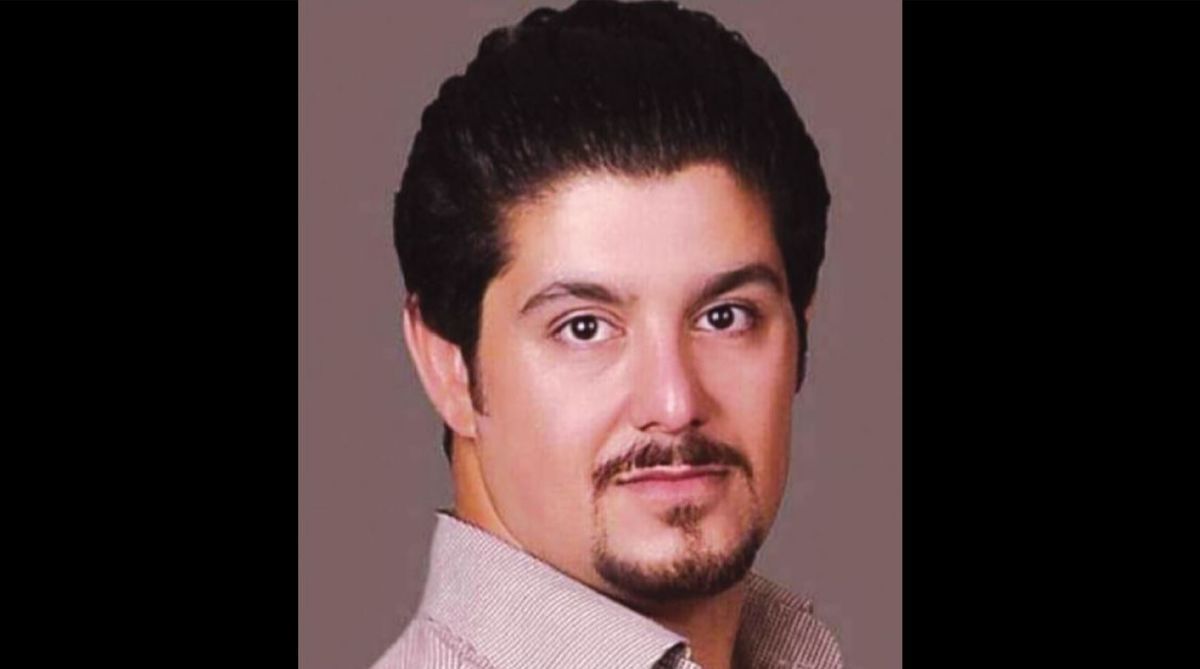Stadium ban for women to be reintroduced in Iran
A stadium ban for women is to be reintroduced in Iran, multiple local news reports said on Wednesday.
The pen is a recurrent motif of Meysams paintings and cartoons and it appears in different shapes and sizes. For him, it is not merely a symbol of liberty and freedom of expression he jealously guards, but also a weapon with which he wants to fight injustice.

Meysam is a painter, cartoonist, poet and novelist from Iran who has been forced to make Turkey his second home and is living there in exile for the past four years with his wife. His uncompromising love for freedom, justice and emancipation of women of his country is posing threat to his life. Yet, he can’t abandon his faith in free speech as an inalienable right of man encapsulated in the age-old maxim of “the pen is mightier than the sword” (“le stylo est plus puissant que l’epee” as his French friends never tire of saying).
In fact, the pen is a recurrent motif of his paintings and cartoons. It appears again and again in different shapes and sizes. For him, it is not merely a symbol of liberty and freedom of expression he jealously guards, but also a weapon with which he wants to fight injustice. His pen evokes myriads of images of protest and reveals the range of his imagery that assumes varied forms.
A brilliant illustration of his passionate fight for the emancipation of women is his loaded depiction of a safety pin. The pin with its restricted space is open symbolising the indomitable feminine urge to break free from the shackles of inhibitions of different types.
Advertisement
Meysam is haunted by the theme of communication ~verbal, visual and telephonic. His paintings celebrate the power of communication in all forms because this is what he has been living for even when the odds are heavily stacked against him.
He was born on 15 May 1983 in Iran and later became a teacher in caricature and cartoon, Cultural and Art Organization of Tehran Municipality.
He was design and cartoon editor of several dailies and magazines, including Development Magazine, Citizen Newspaper, the Iranian Red Crescent newspaper and worked as consultant editor in Shahrvand newspaper. He was an expert in Tehran Vahdat Hall Gallery and held many exhibitions of his paintings and cartoons. A 34-meter drawing of his showing the effect of modern urbanisation courted serious controversy.
He left his country because of daily threats and pressures from the Revolutionary Guards and some of Iranian security forces. The persecution started after the publication of some of his cartoons in well-known journals and newspapers of Iran such as Sanat va Toseh and Sharherwand.
One particular cartoon, drawn after then US President Barack Obama met the Iranian president Hassan Rouhani, depicted two hands holding the US and Iranian flags, forming the dove of peace. Meysam was beaten up by unknown assailants who kept asking him why he had put the US flag over Iran’s flag and why the Iranian character had no beard.
Talking to The Statesman about another experience he said: “After unveiling the painting board, I called the Red Crescent organization to borrow my own painting board for International display. We were supposed to transfer the painting board to the “Peace Museum”, but the person in charge of that department just told me some unacceptable reason, such as it has been torn, unfortunately. After my persistent follow-up, Red Crescent Security officials told me there was a single eye in the painting and the painting should not be shown anywhere. They complained the single eye is a symbol of Judaism and Israel.
“I was threatened again. They told me that I must ignore whatever I see and hear and never talk about those things. They always ordered me what I should and shouldn’t do and somehow they wanted me to work as they liked. I became unemployed. Wherever I found job, they pushed me to quit my job. I kept thinking for many years to find a way to be free of those conditions and threats. Finally, in 2015 I managed to obtain my military service card and passport as well and I left the country.”
The Paris-based Reporters Without Borders took up his case and wrote: “Around 30 journalists or online-citizen journalists are detained in Iran. Over 200 journalists have fled abroad in the past eight years to escape constant persecution.” Pleading for him the RWB writes: “We support his request for protection and inclusion in the UN resettlement programme.”
Advertisement